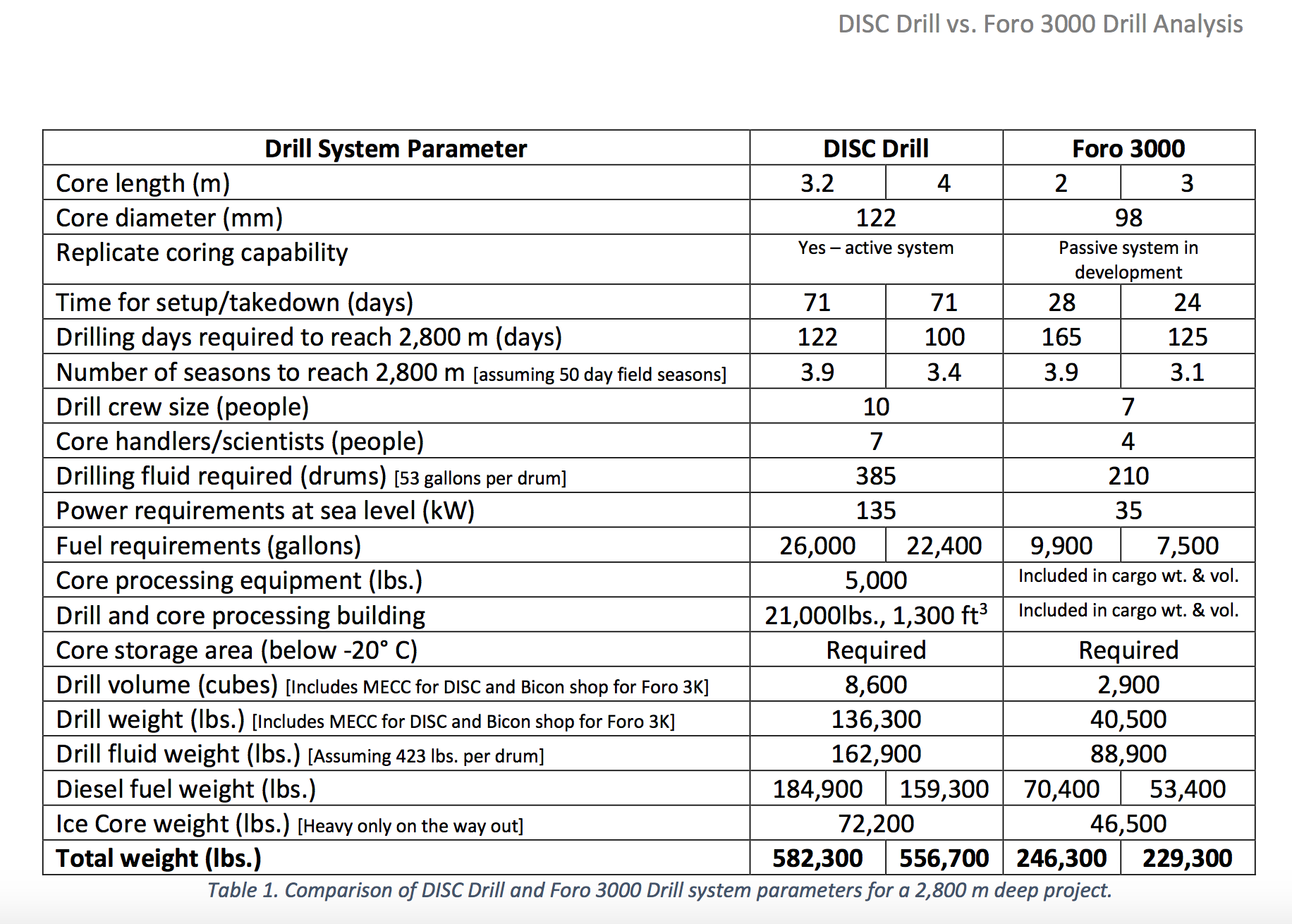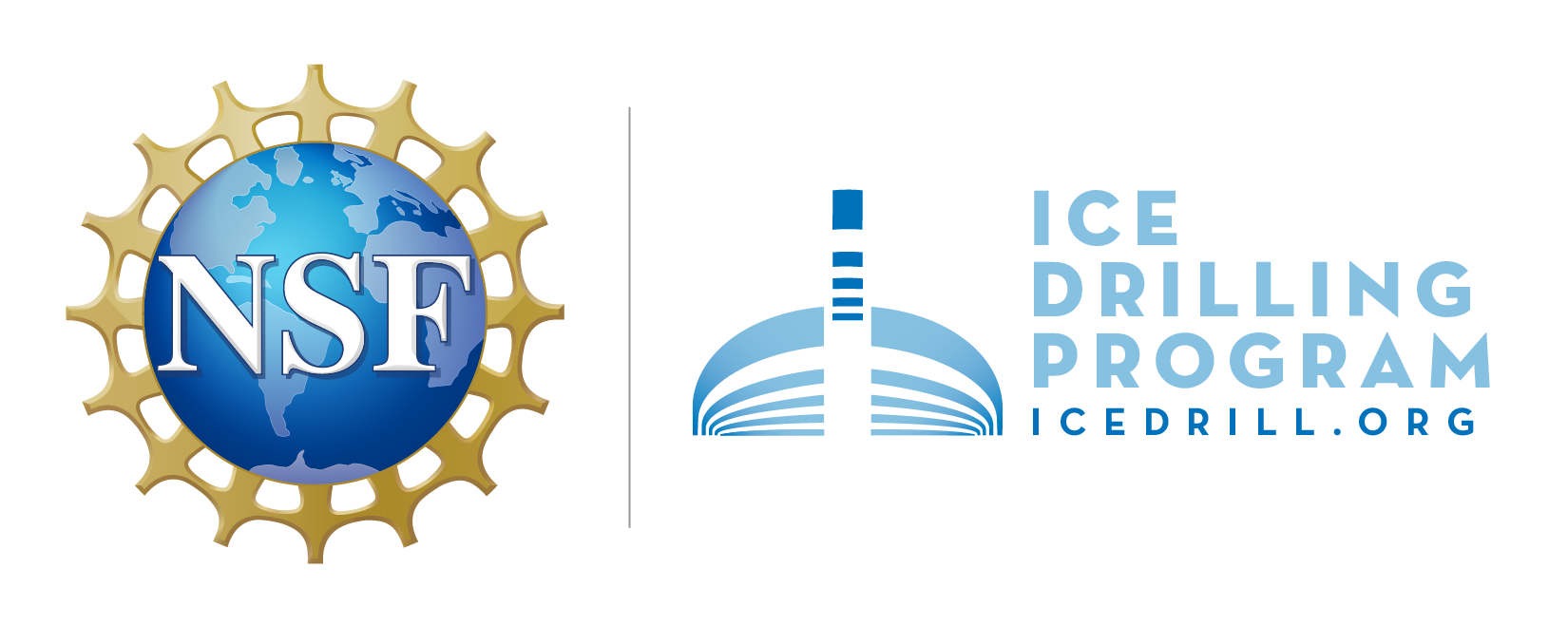News
Mechanical Engineer Job Openings at IDP Madison, WI, USA
The U.S. Ice Drilling Program (IDP) group located at the University of Wisconsin-Madison is seeking two Mechanical Engineers!
IDP supports ice drilling development and operations for the National Science Foundation (NSF). IDP is a small team, composed mostly of engineers that conceptualize, design, test, and ultimately operate drilling equipment in glacial environments in the polar regions and all over the world!
Selected candidates will be required to periodically deploy to remote camps in the polar regions for 1-3 month periods to provide technical support and field operation of equipment.
IDP's history of supporting ice drilling and coring systems, rock drills, and associated support equipment ranges from small hand-held drills to rigs that drill through thousands of meters of ice to retrieve rock cores. The challenge of operating drills and systems in these environments requires a broad set of disciplines and skills from the team of people involved. This dynamic environment requires us to learn about new scientific advances, systems, and technologies on a regular basis. This environment, coupled with meaningful research, provides an exciting career opportunity for any creative and motivated engineer!
The selected candidate(s) will work closely with multidisciplinary teams of scientists, engineers, and technicians to develop state-of-the art unique ice coring and drilling systems for use in the polar regions. The candidate will support the development of engineering requirements; system design; component procurement; part fabrication; and system assembly, test, and operational use. This includes defining and conducting trade studies and leading the development of mechanical, electrical, electro-mechanical and thermal subsystems. Responsibilities may include leading test programs, procedure development, definition and development of unique test hardware, analysis of test data, and producing test reports. This position will also support the maintenance, problem resolution, and upgrade activities for legacy ice drilling systems and will maintain communications with internal and external partners.
For more information, including how to apply for the position, read the complete job advertisement at:
https://jobs.hr.wisc.edu/en-us/job/512023/mechanical-engineer
AGU Town Hall (Online Only): Scientific Drilling in the Polar Regions
The U.S. Ice Drilling Program (IDP) will hold the AGU Town Hall on Scientific Drilling in the Polar Regions on Tuesday, 7 December 2021, from 18:15-19:15 Central Time. This is an online only event. We hope to see you there!
Abstract: Ice sheets, glaciers, and the underlying bedrock, sediment, and permafrost hold crucial evidence of past conditions, ice sheet dynamics, and cratonic geology. National and international collaboration for drilling in the remote Polar Regions requires strategic coordination between science, technology, and logistics. This meeting will provide the research community with brief updates from the US Ice Drilling Program, Ice Core Young Scientists (ICYS), International Partnerships in Ice Core Sciences (IPICS), GreenDrill, and Hercules Dome. In addition, opportunities for community involvement will be showcased, and input from the audience will be solicited.
Date: Tuesday, 7 December 2021. Online Only.
Time: 18:15-19:15 Central Time
AGU meeting website: https://agu.confex.com/agu/fm21/meetingapp.cgi/Session/121992
Presentations: 2021 Scientific Drilling in the Polar Regions presentations
Call for Nominations -- Technology Developments to Advance Antarctic Research
Seeking Experts: Technology Developments to Advance Antarctic Research
The Polar Research Board (of the National Academies of Sciences, Engineering, and Medicine) seeks your input for convening a workshop planning committee. This committee will organize a forum to explore how technological innovation can: advance, facilitate, and transform Antarctic research and facilitate improvements to science support logistics; can increase the reach of scientific investigations in Antarctica while reducing the logistics and environmental footprint of these operations; and can facilitate broader, more diverse participation in Antarctic research. The workshop will address specific disciplinary sciences as well as cross-cutting themes such as: autonomous sensors and platforms, communications and connectivity, transportation and logistics, and energy sources and consumption, including low power and battery developments.
We invite your suggestions for people to serve on the workshop planning committee, including people with expertise in the following areas: sensors and observing systems for geophysical research (geological, atmospheric, cryospheric, oceanic), biological research, and for astronomy, astrophysics, and space weather research; data and communications technologies; low-temperature electronics and batteries/power systems for cold-weather environments; remote logistics support; and robotics and autonomous instrument engineering.
The National Academies are committed to enhancing diversity and inclusion in order to strengthen the quality of our work. Diverse perspectives contribute to finding innovative approaches and solutions to challenging issues. We encourage the nomination of volunteers who reflect the populations we serve and also welcome in particular nominations of candidates from underrepresented racial and ethnic groups, women, and early- and mid-career professionals.
Submissions (including self-nominations) are welcome until September 15th.
Form to submit names: https://survey.alchemer.com/s3/6490084/Call-for-Nominations-Technology-Developments-to-Advance-Antarctic-Research-A-Workshop
DISC Drill - Request Regarding Community Interest
The U.S. Ice Drilling Program is planning use of its drills for the coming decade. If you intend to submit a proposal to the NSF that would require use of the DISC Drill, please send an email expressing your intent to Icedrill@Dartmouth.edu before August 15, 2021.
Additional information: Deep drilling at Hercules Dome will be conducted using the Foro 3000 Drill. A comparison of Foro 3000 Drill and DISC Drill capabilities and associated logistics requirements is available at https://icedrill.org/library/disc-drill-vs-foro-3000-drill-analysis (see Table 1, page 11).

Thank you for contributing to future planning for the U.S. Ice Drilling Program!
2021 Long Range Science Plan and Long Range Drilling Technology Plan Now Available
The purpose of the plans is to articulate goals and make recommendations for the direction of U.S. ice coring and drilling science, as well as for the development of drilling technology, infrastructure, and logistical support necessary to enable the science.
Request for Community Input — DRAFT 2021 Long Range Science Plan
Each year in the spring, the Ice Drilling Program (IDP) works with its Science Advisory Board and the research community to update the Long Range Science Plan. This Plan identifies the science in the coming decade that will require the use of ice drilling technology and expertise for the community. This also drives the formation of other plans, for example, the Long Range Drilling Technology Plan. The plans provide the basis for multi‐annual planning for the actions and drill development projects of IDP and others, and the plans give the funding agencies advance notice of upcoming community science needs.
If you need an ice core or a hole drilled in a glacier or ice sheet in the coming decade or a rock core from under shallow glacial ice, please make sure that the high‐level articulation of your science is captured in the current draft update of the Long Range Science Plan!
Please read through the draft Long Range Science Plan and send corrections, updates, or additions to Icedrill@Dartmouth.edu ASAP or not later than June 12, 2021. When sending corrections/updates, please also reference the appropriate line number in the draft Long Range Science Plan where the correction/update is needed.
Submission deadline: June 12, 2021
To download the working draft, visit:
https://icedrill.org/long-range-science-plan
U.S. Scientific Traverses on the Greenland Ice Sheet: a Planning Workshop
The U.S. Ice Drilling Program and the Summit Science Coordination Office are co-sponsoring a U.S. science community planning workshop on June 11, 2021, to identify and articulate U.S. science community interests for long-term planning of potential scientific traverses on the Greenland Ice Sheet. The workshop is designed to identify the driving scientific questions that require access to interior areas of the Greenland Ice Sheet and would benefit from traverse approaches for the coming decade and beyond. The outcome from the workshop is a set of white papers that will help identify technological and logistical requirements that will be needed to support the science. There is no registration fee; however, registration is required. The registration deadline is June 6, 2021. For complete details, visit the workshop's webpage.
Ice Core Working Group 2021 Virtual Meeting
The Ice Core Working Group (ICWG) is holding its annual meeting on Monday, March 8, from 11 AM to 4 PM EST. The meeting is open to everyone. If you would like to attend the Zoom meeting, please contact T.J. Fudge (tjfudge@uw.edu) to get the link. The agenda can be found at https://icedrill.org/meetings/ice-core-working-group-2021-virtual-meeting.
Currently, the ICWG has 30 minutes planned for updates on projects that potentially involve many members of the U.S. ice coring community (i.e., Hercules Dome or Mt. Waddington ice core drilling projects). If you would like to give a very brief update, please email T.J. Fudge (tjfudge@uw.edu). If you are unable to attend but still would like to provide an update, please either send a prepared slide and text to T.J. or ask one of the ICWG members to give the update on your behalf.
T.J. Fudge, University of Washington
Becky Alexander, University of Washington
Christine Foreman, University of Montana
Andrei Kurbatov, University of Maine
Jeff Severinghaus, Scripps Institution of Oceanography
Vas Petrenko, University of Rochester
Summer Rupper, The University of Utah
AGU Town Hall: Scientific Drilling in the Polar Regions
The U.S. Ice Drilling Program (IDP) will hold the AGU Town Hall on Scientific Drilling in the Polar Regions on Wednesday, 16 December 2020, from 16:00-17:00 PACIFIC (19:00-20:00 EASTERN).
Abstract: Ice sheets, glaciers, and the underlying bedrock, sediment and permafrost hold crucial evidence of past conditions, ice sheet dynamics, and cratonic geology. National and international collaboration for drilling in the remote polar regions requires strategic coordination between science, technology, and logistics. This meeting will provide the research community with updates on IDP, IPICS, and other drilling initiatives. Opportunities for community involvement will be showcased, and input from the audience will be solicited.
Date: Wednesday, 16 December 2020
Time: 16:00-17:00 PACIFIC (19:00-20:00 EASTERN)
AGU meeting website: https://agu.confex.com/agu/fm20/meetingapp.cgi/Session/102717
2020 Long Range Science Plan and Long Range Drilling Technology Plan Now Available
The purpose of the plans is to articulate goals and make recommendations for the direction of U.S. ice coring and drilling science, as well as for the development of drilling technology, infrastructure, and logistical support necessary to enable the science.
